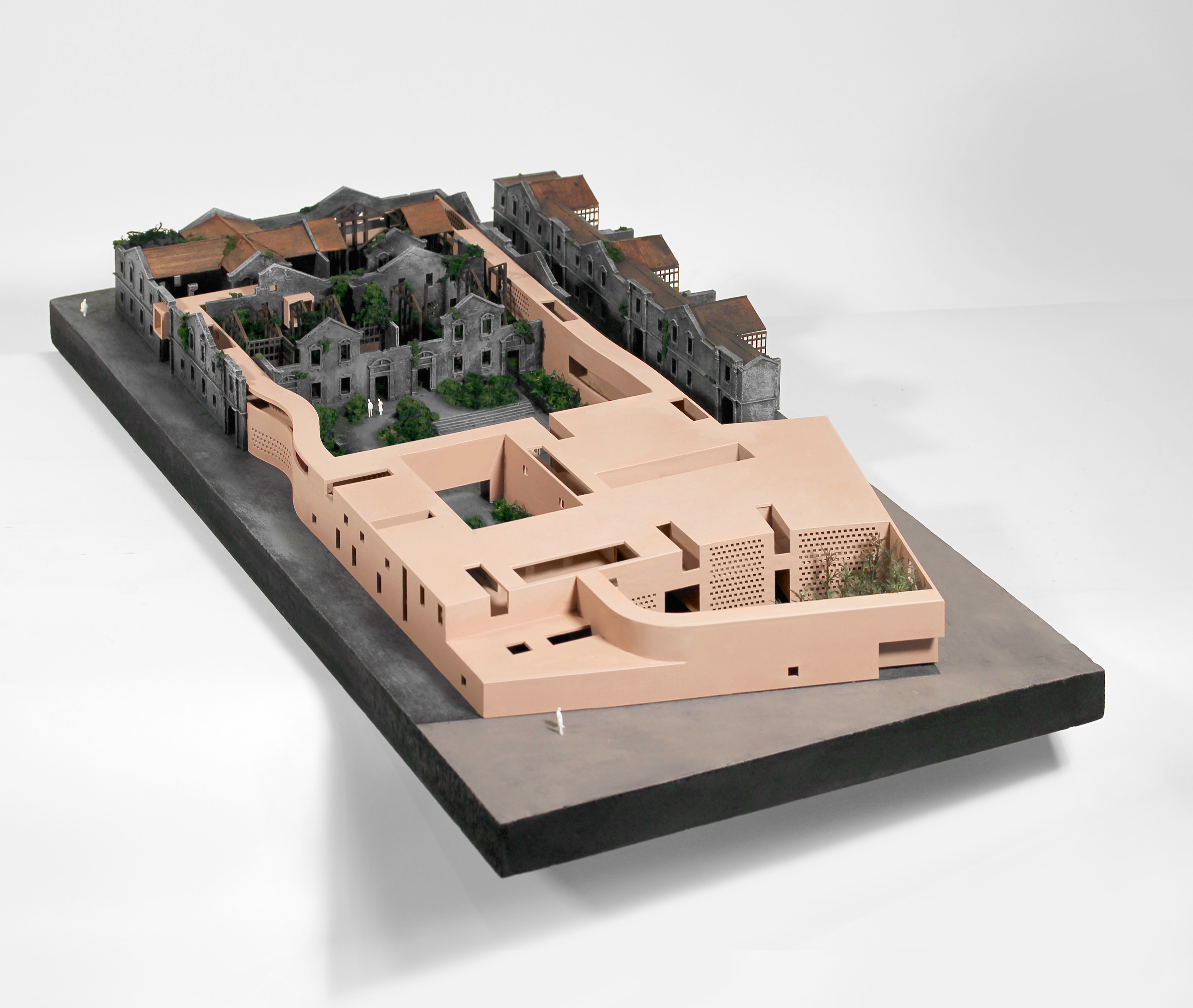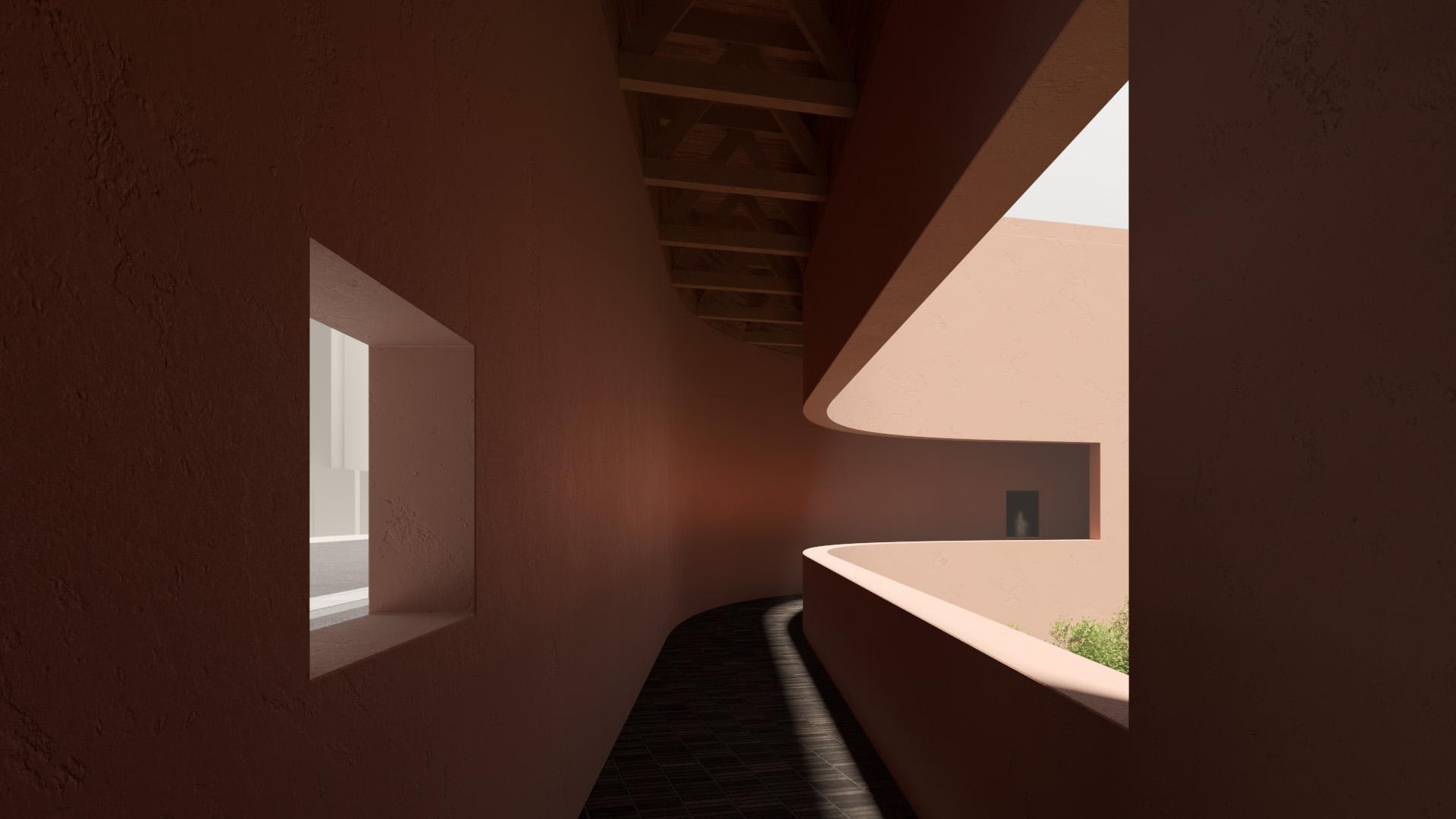LAZY GARDENER HOTEL

Harvard GSD, Fall 2019
Reflective Nostalgia: Alternative Futures for Shanghai’s Shikumen Heritage
Advisors: Lyndon Neri & Rossana Hu
Shikumen style lilongs, or lane houses, once made up the majority of Shanghai’s city fabric. Since the 1990s, however, the city’s real estate boom has all but erased this once ubiquitous housing type.
Recently, a growing appreciation for the historic lilong in Shanghai has spurred efforts to preserve the remaining shikumen construction through redevelopment. This method of preservation, however, often represents its own form of erasure. The ramshackle conditions of the extant lilong buildings make them unsuitable for reuse in their current state, so their preservation usually entails disassembly and reconstruction as historic facades for new luxury shopping districts or condominiums.


The hotel extends a covered promenade around and through the ruined shikumen blocks. Inspired by the gardens of Suzhou, this pathway frames a series of perspectives into these fragments of civic memory. Rooms and amenities are organized along the looping promenade. In the main body of the hotel, courtyards provide light and glimpses between levels.
The wild growth already present on the site is allowed to remain. The plants continue their creeping takeover of the old structures. Very slowly, the buildings are destroyed by natural causes.








